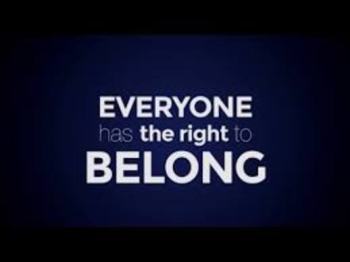For the first time in my few years on planet Earth I met a stateless person. I had an opportunity of listening to his experience. The experience entailed how he could not depend on himself despite being a qualified commercial pilot who was born and raised in Kenya. It brought the reality of the difficulty in implementing Sections 15, 16 and 17 of the Citizenship and Immigration Laws (2011). The difficulty is also in implementing the Citizenship and Immigration Regulations (2012).
The Universal Declaration on Human Rights (1948) recognizes an individual’s right to nationality under Article 15.
Statelessness is therefore a lack of the right to nationality.
A stateless person is defined under Article 1 of the 1954 Convention on the status of stateless persons as a person who is not considered as a national by any state under the operation of law. The same definition is given under Section 2 of the Citizenship and Immigration Act (2011).
People become stateless because of issues like Renunciation where a person ‘renounces’ the citizenship that they have for different reasons like to acquire nationality of another country. Luckily for Kenya dual nationality is provided for under the constitution. This therefore safeguards our citizens.
Another reason is Deprivation where one is stripped off of their nationality because of mostly political reasons. For example the Galje’el community that was stripped off their Kenyan nationality in 1989 and declared non Kenyans following a screening exercise by government security forces.
Finally, Loss which happens when a citizen of a particular state is away from their country for a longtime or in instances where there is state succession. Some of the contributing factors are state succession, civil unions and gender discriminatory laws which Kenya is a step ahead since either gender can confer nationality as per Article 14 of the constitution of Kenya (2010).
Some of the communities in Kenya that are known to be stateless include the Makonde, descendants of British Overseas after 1983. The Nubian community in Kenya are also said to be persons at risk of being stateless.
Take an example where there is a delay of issuance of ID cards the persons who do not have theses identity documents can be persons at risk of being stateless.
It is therefore important to get your children registered. If they get a birth certificate then it becomes a great step towards ending the issue of statelessness. If a child is not registered when they turn 18 years old it is a bit harder for them to either get an ID or a passport which puts them at risk of being stateless.
When a person becomes stateless he or she is not in a position to access basic human rights like education, health. They are not able to own any property or even at the least despite of any expertise in any area they cannot even volunteer. This percentage of the population is therefore unable to participate fully in the economic, social and political life of the country.
Being stateless means not having any identification documents therefore being at risk of arrest because of not being a registered person.
It could also lead to generational statelessness where statelessness is passed down to each new generation. Every human being has a right to nationality and this right is equal to all the other rights.
It shows an individual’s sense of belonging to a country, the power to say ‘iBelong’.
By:-
Julie Matoke
Kituo Cha Sheria
Forced Migration Program, Advocacy Department.

